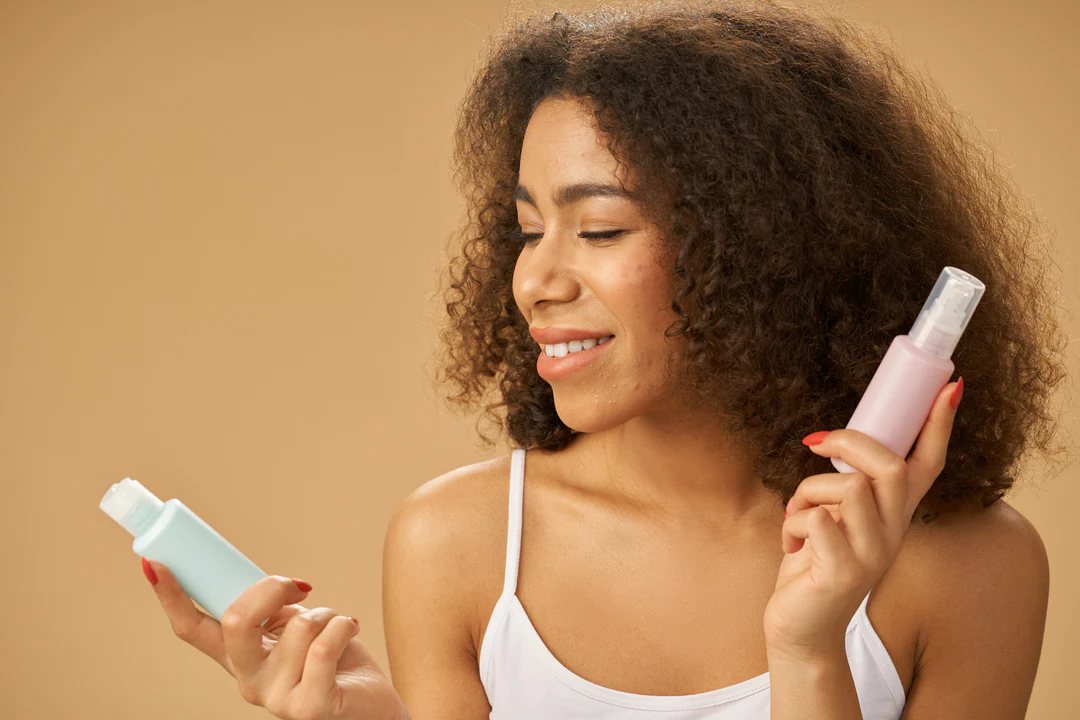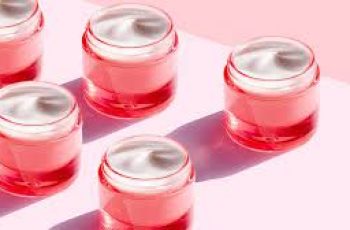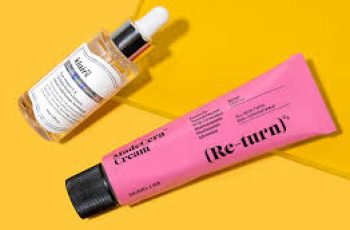Are serums and toners the same thing?
I’ll be the first to admit that skincare products can be very confusing, especially when you’re trying to use them in your daily skincare routine. We often get questions about which products we should use, which products go together, and when we should use them.
With that in mind, today I’m going to address an answer I recently got, which is: “Are serums and toners the same thing?” So, if you’ve ever wondered a question like that, stay tuned as we learn more together.
What do serums do for your face?
You’ll often find serums as skincare products that contain powerful active ingredients. You can expect glycolic acid, salicylic acid, vitamin C, and more to be added to the mix, as serums are known for their ability to penetrate the deepest parts. If you’re concerned about premature aging, hyperpigmentation, and dull complexion, I’m sure you’ll find a serum that’s right for you and your skin type.
Serums have a different texture than other products, such as: B. Moisturizers, as they typically have a lighter consistency, meaning they should be applied to the skin before moisturizers or other thicker products. The easiest way to remember what serums actually do for your skin is to think of them as a packaged delivery package designed specifically to target specific areas and concerns.
The main benefits of serums and areas where they can help are as follows:
Have anti-aging benefits as they reach the lower layers of the skin and repair free radical damage that can lead to signs of premature aging, including fine lines and wrinkles.
Fight uneven skin tone and hyperpigmentation, such as dark spots caused by overexposure to harmful UV rays, for example.
Deeply nourish and hydrate the skin, restoring the skin’s natural protective barrier, which is often compromised when exposed to various environmental aggressors.
The most effective way to ensure your skin receives the maximum amount of vitamins, active ingredients, and powerful blends.
There are many other benefits to using serums, but I just want to tell you about the most common and most noticeable ones first. Although serums are considered powerful products, it is entirely up to you and your daily routine whether or not to use one.
What does toner do for your face?
Traditionally, toners are part of the famous daily method, better known as cleansing, toning, and moisturizing. Admittedly, a lot has changed since then, and you’ll find that toners have changed in many ways, too. For example, the floral water step that was previously made didn’t do much for the skin other than leave it feeling clean and fresh. Now, you can find a range of toners, all with different active ingredients and chemical exfoliants, such as AHAs and BHAs, with glycolic acid being the most popular. Many times, toners can do the job of a cleanser to benefit the skin. For example, cleansers can remove leftover product and bacteria while loosening up dead skin cells from the skin’s surface. After wiping a cotton pad with your chosen toner, remove any remaining dirt, debris, and dead skin cell buildup.
Here’s a quick rundown of the benefits of using a toner in your skin care routine:
When a toner contains active ingredients and chemical exfoliants, it can help remove dirt, bacteria, dead skin cells, and traces of product left behind after cleansing.
A toner removes any barriers that prevent other skincare products from penetrating the skin and reaching the layers they need to reach.
You can find toners for all skin types, from traditional floral waters to chemical exfoliant hybrids.
If used correctly, you can keep your skin healthy and radiant by removing buildup from the outer surface of the skin and balancing excess sebum.
Can I use a serum without a toner?
This is entirely up to you and what works in your skincare routine. Since I’ve already mentioned the benefits of using a toner, there’s no law that says you have to use all of these products. The key points to remember when using a serum with or without a toner are:
Serums can penetrate the dermis as long as your skin is clean, but if you use a toner first, it may not be as fast.
By using a serum instead of a toner, you can avoid overdoing it with a strong formula that can cause dry skin if not used correctly.
People with oily or blemish-prone skin may find that skipping a toner can lead to an imbalance in excess sebum, which can be controlled with other ingredients and products.
Each product works perfectly as a standalone product, but you may find that using them together creates a powerful duo with skincare benefits.
We’ve already given you tips on the effects of using a serum and toner together. I’ll explain this to you in more detail now. However, if you feel that serums are a topic that needs further explanation, or you need help choosing the right product for your skin, check out our dedicated serum blog post.
Can toners and serums be used together?
Anyway! As mentioned before, serums and toners are a potent power duo that can provide your skin with a variety of skincare benefits. While both products work well on their own, using them together can provide additional benefits such as:
Treat your skin with complementary ingredients for optimal results
Toners remove the barrier, allowing serums to absorb into the skin faster
Serums regenerate and soothe the skin after using a toner with a chemical peel like glycolic acid
I would even go so far as to say that if you haven’t incorporated any of these products into your daily skincare routine before, you’ll notice a huge difference in your skin.
Should serums be used before or after toners?
Toner is considered the second step in your skin care routine and helps prepare the skin for absorption and further penetration of other products. Therefore, it is recommended to use a toner before applying a serum to achieve the best results and reap the benefits of using the product correctly and effectively.
I hope this answered some of your questions about serums and toners. If you have skincare questions, don’t forget to head over to our Instagram and leave us a comment. We look forward to seeing you there!
DQH Knowledge drop: In your 20s, your skin cell turnover decreases. (Cell turnover is a key component in keeping your skin youthful.) You know what else slows down? Your collagen production. Starting in your 20s, collagen decreases by about 1 percent per year. Should you want to prevent fine lines and wrinkles, start by eliminating behaviors that contribute to premature aging. “If it’s bad for you, it’s bad for your skin,” says dermatologist Michel Somenek.
“Cigarette smoking reduces blood flow to the skin and causes premature wrinkling and a dull skin texture. Making the repeated pursed motion to inhale can also cause smoker’s lines. Alcohol and recreational drugs are toxins for the skin that damage its cellular structure and DNA,” Somenek tells us. “The faster you eliminate vices while you are young, the better chance your skin and body have to recuperate.” Also, adopting an anti-aging routine in your 20s is key. After all, the best offense is a good defense. We spoke to Somenek and experts Joshua Ross and Audrey Kunin to find out more.
Keep reading for the best anti-aging products for your 20s, according to skincare professionals.
Sunscreen
“We all know that the sun is the number one cause of skin aging and starting the prevention in your 20s is very important,” Ross says. “The majority of your sun damage won’t start to appear until you’re in your 30s, so don’t wait until you see it surface or you’ll be behind the curve. Stay ahead of it with a good-quality zinc-based sunscreen worn daily.”
Farmacy Green Defense Daily Mineral Sunscreen
An invisible sunscreen with SPF 30, plus botanical extracts meant to protect skin with tons of antioxidants. Bonus: It’s clean and fine to use under makeup.
Bareminerals Complexion Rescue™ Tinted Moisturizer Broad Spectrum SPF 30
Although we recommend you use your SPF and moisturizer separately, we also understand moments when you don’t have time or energy for that extra step. For those times, this bareMinerals moisturizer is a great thing to have on hand.
Vitamin C Serum
“A great introduction to anti-aging is to start with a vitamin C serum in your morning skincare routine,” Ross says. “It’s a powerful antioxidant that will neutralize free radicals and brighten the skin.” He adds that it’s a great way to counteract the effects of the sun’s harmful rays, which, as previously mentioned, are among the biggest causes of premature aging.
Drunk Elephant C-Firma™ Vitamin C Day Serum
The Drunk Elephant C-Firma is a lightweight serum that promises to give skin a glow by combining the brightening powers of vitamin C with ferulic acid, l-ascorbic acid, and vitamin E. The included sodium hyaluronate is meant to replace hydration loss, so you shouldn’t have to deal with any irritation.
Sunday Riley C.E.O. Rapid Flash Brightening Serum
This potent serum is jam-packed with vitamin C (15 percent, to be exact), which means it’s a potential superstar at both brightening skin and dousing it in antioxidants.
Peptides
Using peptides on your skin has many benefits, says Somenek. “The skin barrier is what defends the body against pollution, UV rays, bacteria, and toxins. It can be damaged by several everyday factors. Using topical peptides aids in building a stronger barrier,” he says. “Peptides comprise elastic fibers, which are a type of protein. These fibers help to make skin appear taut and firm. Peptides can also help repair damaged skin, relieve inflammation, and even out skin tone. Some peptides can kill acne-causing bacteria that is common in 20-somethings.”
Kunin agrees, saying, “Peptides are an excellent entry point for supporting collagen.” She recommends looking for face and eye treatments that contain these collagen-boosting powerhouses.
Charlotte Tilbury Magic Eye Rescue Cream
This Charlotte Tilbury super-emollient eye cream has a base of coconut oil and shea butter (read: it’s incredibly hydrating). Botanicals plus peptides are meant to help reduce dark circles and boost collagen, respectively.
This creamy moisturizer serves up potent collagen-boosting peptides and pycnogenol, and antioxidant-rich vitamin C. “Instead of sitting on top of the skin, peptides penetrate the outer layer so they go deep. The ‘signals’ they send tell the cells to produce elastin and collagen, which are needed for youthful-looking skin,” explains Somenek.
At-Home Peel Pads
Remember that skin cell turnover fiasco we talked about earlier? One way to help support it is by exfoliating. “Exfoliation is important to help keep skin fresh and luminous,” Kunin says. She recommends using at-home peel pads as an easy and effective way to exfoliate.
“The goal in your 20s is to fight the slowing pace of cell turnover. It is wise to use products that gently exfoliate, yet still remove oil and other impurities. Products that have Alpha Hydroxy Acids (AHA) or Beta Hydroxy Acids (BHA) are a good choice.”
According to Somenek, you should only exfoliate two to three times a week. “People of all ages are guilty of over-exfoliating and that can be too much of a good thing,” he says.
Dermadoctor Kakadu C Intensive Vitamin C Peel Pad
A few swipes of this Derma Doctor powerful peel pad promise to leave your skin glowing and smooth, thanks to the seven (yes, seven) types of chemical exfoliants, including AHA and BHA. It also contains vitamin C via Kakadu plum extract for added brightening and antioxidant protection.
KEY INGREDIENTS Kakadu plum extract is sourced from the Kakadu plum, a fruit grown in northern Australia. It contains vitamin C, which restores the skin’s natural barrier, increases collagen production, and soothes irritation.
Dr. Dennis Gross Skincare Alpha Beta® Universal Daily Peel Pads
These are the gold standard of peel pads, with a cult following and over 900 five-star reviews on Sephora. They’re easy to use and contain a blend of anti-aging exfoliating acids.
Emollient Night Cream
“In your 20s, you need to start upping the hydration in your skincare routine. You may have been cautious of over-moisturizing because of acne in your teens, but as you enter your 20s, your skin transitions and becomes drier,” Ross says. “I recommend an emollient night cream added into your evening skincare regimen.”
“Twenty-somethings need to make sure that they are not using creams that will clog their pores and cause excess oil production,” says Somenek. Opt for non-comedogenic products.
Cerave Skin Renewing Night Cream
One great choice is the CeraVe Skin Renewing Night Cream, which is a non-comedogenic night cream that leaves skin soft and glowy. It combines the moisturizing powers of ceramides and hyaluronic acid.
RoC Retinol Correxion Max Hydration Creme
“The best night cream ingredients contain retinol, benzoyl peroxide, and/or salicylic acid or hyaluronic acid. The goal is to moisturize, yet remove excess oil,” says Somenek. This Roc Retinol Correxion cream fits the bill as it contains both hyaluronic acid and retinol so it promises to moisturize while also being non-comedogenic.



